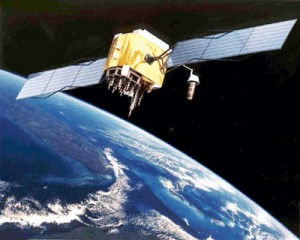 The Internet is abuzz with discussion of a new technology called cloud computing. Companies like Microsoft, Apple, Amazon and Google are leading the way in introducing this new technology to the public. With the launch of any new technology come a variety of questions. What exactly is cloud computing? Do I need it? Are there risks involved?
The Internet is abuzz with discussion of a new technology called cloud computing. Companies like Microsoft, Apple, Amazon and Google are leading the way in introducing this new technology to the public. With the launch of any new technology come a variety of questions. What exactly is cloud computing? Do I need it? Are there risks involved?
Cloud computing allows people to access and use their software applications and files anywhere on the Internet. Think of it as “Files On Demand.” Say you have an important file on your home PC. Store it in a password-protected cloud and you could access the file from any computer, anywhere you have Internet access. Chances are, you already use some form of Cloud Computing and don’t know it. Access documents on Google Docs? You’re in the cloud. Store your files remotely using services like Mozy or Mobile Me, and you’re in the cloud.
In short, cloud computing is remote file storage and access, a space for all kinds of documents from pictures to songs, that is accessible through any Internet connected computer. The greatest benefit for us is that we can store more information and use more software than we have the hardware to support.
The majority of casual Internet users don’t “need” to store stuff in the cloud. But it can be a very valuable asset. Remote storage guards against hard drive failure or a glitch that erases files. Also, it allows easy access to files wherever you might need them so you don’t have to store information (or really big files) on your machine. Instead, you can just access them when you need them and put them back in the cloud when you’re done.
Hanging in the clouds is not just for you, even companies like to go to the cloud. Watch this commercial from Microsoft to see how a start-up company uses cloud computing to collaborate.
So you may be wondering, what are the risks? As with anything related to computers and the Internet, there will be risks incurred. A growing number of people are looking more carefully at the risks of cloud computing: data hacking can cause serious, long-term damage.
Because information is stored in remote and, often, unknown locations, there is the chance that it can be hacked. This is probably the biggest risk and one that, more and more, people feel outweighs the benefits of cloud computing. That said, more and more effort is also being put into increasing cloud security.
Or, you might just find out that the cloud isn’t behaving. Just today, Amazon users suffered from this, and Amazon is the leader in cloud computing.
Should you rise to the clouds? That all depends on how much money you need to save, how hard it is for you to travel with your documents and software applications, and how much you believe in the security and reliability of the cloud you are going to use. And that is something you’ll have to decide.

 Lately, it seems like we hear a story every week about a new security breach concerning our personal information. Just a few weeks ago, Epsilon was hacked and millions of email addresses were stolen. A few weeks later, Sony announced that their worldwide gaming network too was hacked. And now, companies like Apple and Google are being scrutinized for their questionable iPhone and Android tracking processes.
Lately, it seems like we hear a story every week about a new security breach concerning our personal information. Just a few weeks ago, Epsilon was hacked and millions of email addresses were stolen. A few weeks later, Sony announced that their worldwide gaming network too was hacked. And now, companies like Apple and Google are being scrutinized for their questionable iPhone and Android tracking processes.

 The Internet is abuzz with discussion of a new technology called cloud computing. Companies like Microsoft, Apple, Amazon and Google are leading the way in introducing this new technology to the public. With the launch of any new technology come a variety of questions. What exactly is cloud computing? Do I need it? Are there risks involved?
The Internet is abuzz with discussion of a new technology called cloud computing. Companies like Microsoft, Apple, Amazon and Google are leading the way in introducing this new technology to the public. With the launch of any new technology come a variety of questions. What exactly is cloud computing? Do I need it? Are there risks involved?
Follow me